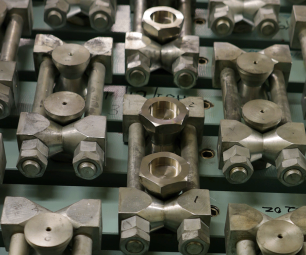The system adapts to, services and enhances the productivity and growth of Australian industries. It aims to ensure a fair, safe, healthy and competitive Australia.
The National Measurement Institute (NMI) is the peak body responsible for maintaining Australia’s measurement system.
Measurement functions (both scientific and legal), together with documentary standards, laboratory accreditation and conformity assessment activities make up Australia’s standards and conformance or ‘quality’ infrastructure.
Under the Australian Constitution, the Commonwealth has a constitutional head of power for weights and measures. Under the National Measurement Act 1960, a Chief Metrologist is appointed by the Secretary of the responsible department.
Australia’s measurement legislation
Legislation for Australia’s measurement system includes:
- National Measurement Act 1960
- National Measurement Regulations 1999
- National Measurement Guidelines 2016
- National Trade Measurement Regulations 2009.
Australian legal units of measurement
The measurement legislation establishes Australian legal units of measurement. The units are realised through standards of measurement, for uniform use throughout Australia.
The legal units of measurement are prescribed in terms of the International System of Units (SI) established under the Metre Convention. Australia is a signatory to the Convention, which provides the basis for international agreement on units of measurement. The General Conference on Weights and Measures (CGPM), established under the Convention and comprising representatives from the Convention’s signatory member states, is the peak global body responsible for ensuring world-wide uniformity in units of measurement.
Developing and maintaining national measurement standards
NMI maintains Australia’s primary measurement standards to realise the legal units of measurement, and provides traceability to the SI for all Australian made measurements. Traceability in measurement involves ensuring an unbroken chain of calibrations to primary measurement standards. Traceability helps ensure that measurements are comparable to each other and gives industry, researchers, regulators and consumers confidence in the accuracy of measurement results.
NMI fulfils these important roles by:
- developing and maintaining standards of measurement for physical quantities
- developing chemical and biological reference materials
- delivering proficiency testing services
- delivering measurement services.



